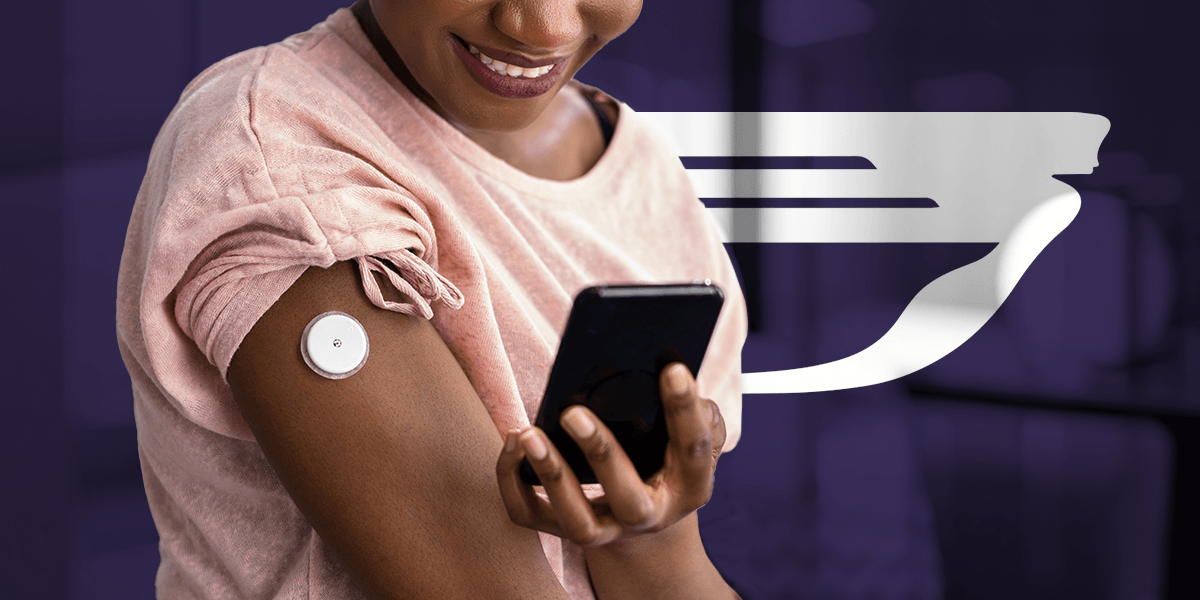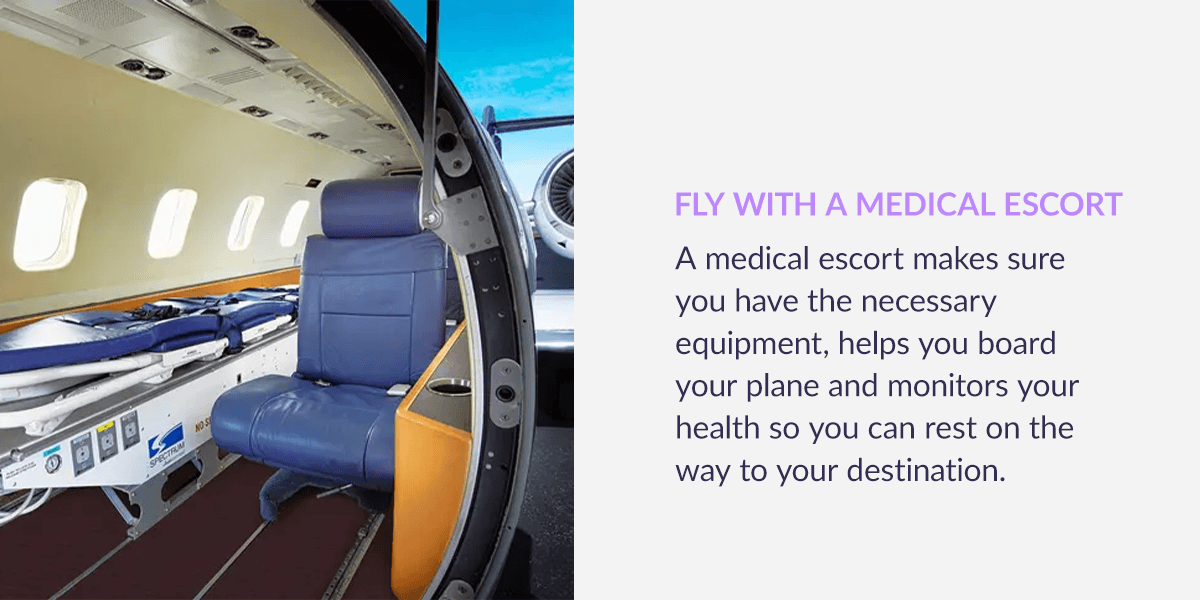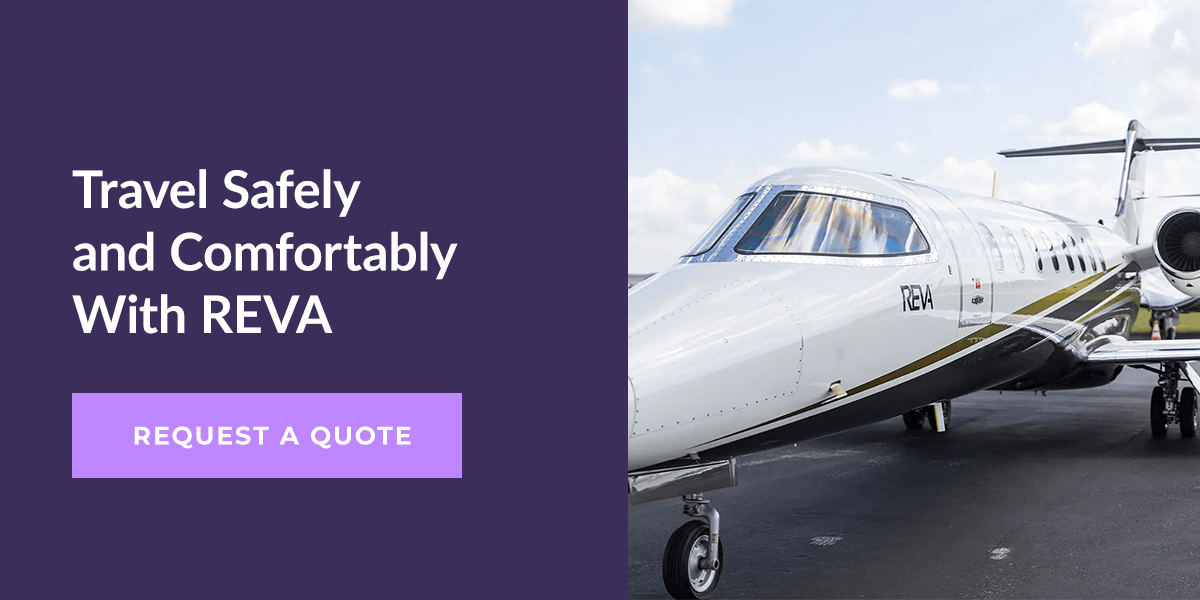Blog
STAYING ON THE FOREFRONT OF MEDICAL AIR TRANSPORTWhat Diabetic Patients Should Know Before Flying
Flying with a diabetic condition requires special attention to medication, monitoring devices and security guidelines, but that should never hold you back from taking a vacation, visiting family or traveling for work. Following important travel tips can help you reach your destination safely and comfortably.
The Basics of Diabetes and Flying
Flying with diabetes is safe if you take precautions and prioritize your health during your travels. The following measures can help you manage your diabetes and enjoy a comfortable flight:
Stay Hydrated
Staying hydrated is essential for your overall health and diabetes management. Avoid soda and alcoholic beverages on your flight, and drink plenty of water instead.
Try to Relax
Stress increases blood sugar levels. If you get stressed out while traveling, practice relaxation techniques, such as deep breathing.
Maintain Movement for Adequate Blood Circulation
Movement can help you maintain proper blood circulation and prevent swelling, blood clots and deep vein thrombosis (DVT), which is a blood clot in a deep vein that can travel to the lungs. Consider the following ways you can incorporate movement into your flight:
- Walking: Walk up and down the plane aisles several times to get your blood pumping.
- Toe and heel raises: You can do toe and heel raises at your seat by keeping your legs at a 90-degree angle while alternating between lifting your heels and toes. Repeat this process for 15 to 20 repetitions or for as long as it’s comfortable.
- Ankle rolls: While sitting in your seat, you can lift your feet and rotate your ankles in a counterclockwise motion for 10 to 15 repetitions before switching to a clockwise motion.
Wear Compression Stockings
Compression stockings, or thromboembolic deterrent stockings, apply pressure to your feet, ankles and legs to prevent or reduce swelling. Wearing compression stockings during your flight can also help prevent a DVT blood clot because they support healthy blood circulation.
Monitor Your Health and Take Medications on Time
Maintaining your regular medication, meals and monitoring schedule as closely as possible is essential. While preparing for and boarding a flight may alter your daily routine, keeping track of the time and monitoring your blood sugar levels as you would at home is crucial.
Pack Supplies and Healthy Snacks in a Convenient Location
Packing your supplies, medications and snacks in a convenient location can help you stay on schedule during your flight. If the airline serves flight meals at different times than your body is used to, you can manage your blood sugar levels with nutritious snacks. Pack the following types of healthy diabetic snacks for air travel:
- Mixed nuts
- Dried fruit
- Whole grain crackers
- Seeds
Remember to follow liquid restrictions and pack all of your snacks in your personal item or carry-on to keep them accessible at all times.
Fly With a Medical Escort
Medical escort services can make your trip easier by caring for you during your flight. A medical escort makes sure you have the necessary equipment, helps you board your plane and monitors your health so you can rest on the way to your destination. Medical escorts are highly trained to prevent complications and intervene in medical emergencies, so they can provide additional comfort and peace of mind while you travel.
Does Flying Affect Blood Sugar?
The following factors may cause abnormal blood sugar level fluctuations:
- Time and routine changes: Time changes when flying to another time zone can disrupt your normal eating schedule, causing irregular blood sugar spikes and dips.
- Inactivity: Sitting on a plane for several hours can impact blood sugar levels.
- Stress: If you’re an anxious flier or simply become stressed out due to a disruption in your travel plans, those feelings can spike your blood glucose levels.
- Food: The type of food airlines provide for passengers can also increase blood sugar levels.
- High altitudes: A flight’s high altitudes can increase stress hormones and decrease carbohydrate metabolism efficiency. This can result in insulin resistance, high blood sugar or ketoacidosis, the latter of which occurs when you lack the necessary insulin for your cells to absorb blood sugar for energy.
How Do You Travel With Insulin and Monitoring Equipment?
Traveling with diabetic supplies is a smooth process when you know what to expect and how to prepare. You can take insulin on a plane as long as you follow the Transportation Security Administration’s (TSA) instructions.
When you reach the airport’s security checkpoint, notify the TSA agent that you have medically necessary liquids and unused syringes. The TSA agent will most likely ask you to place your insulin and injection supplies in a separate bin during X-ray screening. You should always place your insulin in your carry-on luggage to prevent exposure to temperature and pressure changes in the plane’s checked luggage compartment.
Monitoring equipment such as continuous glucose monitors (CGMs), pumps and blood glucose meters can malfunction on a plane due to cabin pressure changes. For example, lower oxygen pressure may cause a glucose meter to detect inaccurate glucose levels. Additionally, insulin pumps may deliver insufficient or excessive medication when pressure changes.
Follow these tips to fly with insulin and monitoring equipment safely:
- Store only 1.5 milliliters in your insulin cartridge
- Disconnect your insulin pump before take-off
- Clear air bubbles from the cartridge, and reconnect it at the height of your flight
- Disconnect your pump again after landing, and fill the line with 2 units of insulin
- Reconnect the pump after refilling your cartridge
- Remember to disconnect your pump if you experience any flight emergencies, such as cabin decompression
Before flying, make sure to check in with your endocrinologist to see if they have any specific recommendations for you.
Traveling With Diabetes Checklist
This quick checklist can help you prepare for your next trip:
- Write instructions for how to properly travel with your blood sugar monitoring devices.
- Record the times you need to eat and take necessary medications, making sure to account for time zone changes.
- Pack your insulin and unused syringes where you can easily remove them for security scanning.
- Review exercises you can do during your flight, and wear compression stockings.
- Get healthy snacks and water before boarding your flight.
To make your trip as easy, comfortable and safe as possible, consider flying with a medical escort. A medical escort can monitor your health and manage your blood sugar during flight, intervening if you need any emergency or non-emergency medical attention.
Why Trust Us
REVA is the world’s largest fixed-wing jet air ambulance company, and we provide each patient with comfort and complete care. With over 30 years of experience, we help individuals with medical conditions and specific health needs reach destinations or travel between hospitals safely. Whether you need air ambulance transport or a medical escort to accompany you on a commercial flight, you can rely on us to take care of the entire process.
Our compassionate employees receive extensive education and training to exceed industry standards, and we have received numerous accreditations from respected agencies such as:
- Department of Defense (DOD): The United States DOD trusts REVA as an approved air carrier.
- ARGUS Platinum: ARGUS International awarded REVA the Platinum rating, which is the highest aviation safety and quality level. Earning this rating reflects our history of safety and dedication to reliable medical air transport.
- NAAMTA: REVA demonstrates compliance with all National Accreditation Alliance Medical Transport Applications (NAAMTA) standards, reflecting our unmatched safety approach.
- EURAMI: REVA received European Aero-Medical Institute (EURAMI) accreditation for providing maximum safety on long flights.
Travel Safely and Comfortably With REVA
Flying with diabetes is safest and easiest when you travel with medical support. REVA’s medical escorts provide comfort, medical monitoring and expert care during your trip, and we have the knowledge and experience to intervene if a medical complication or emergency arises during your flight. Contact us to request a quote and learn how a medical escort can improve your flying experience.



